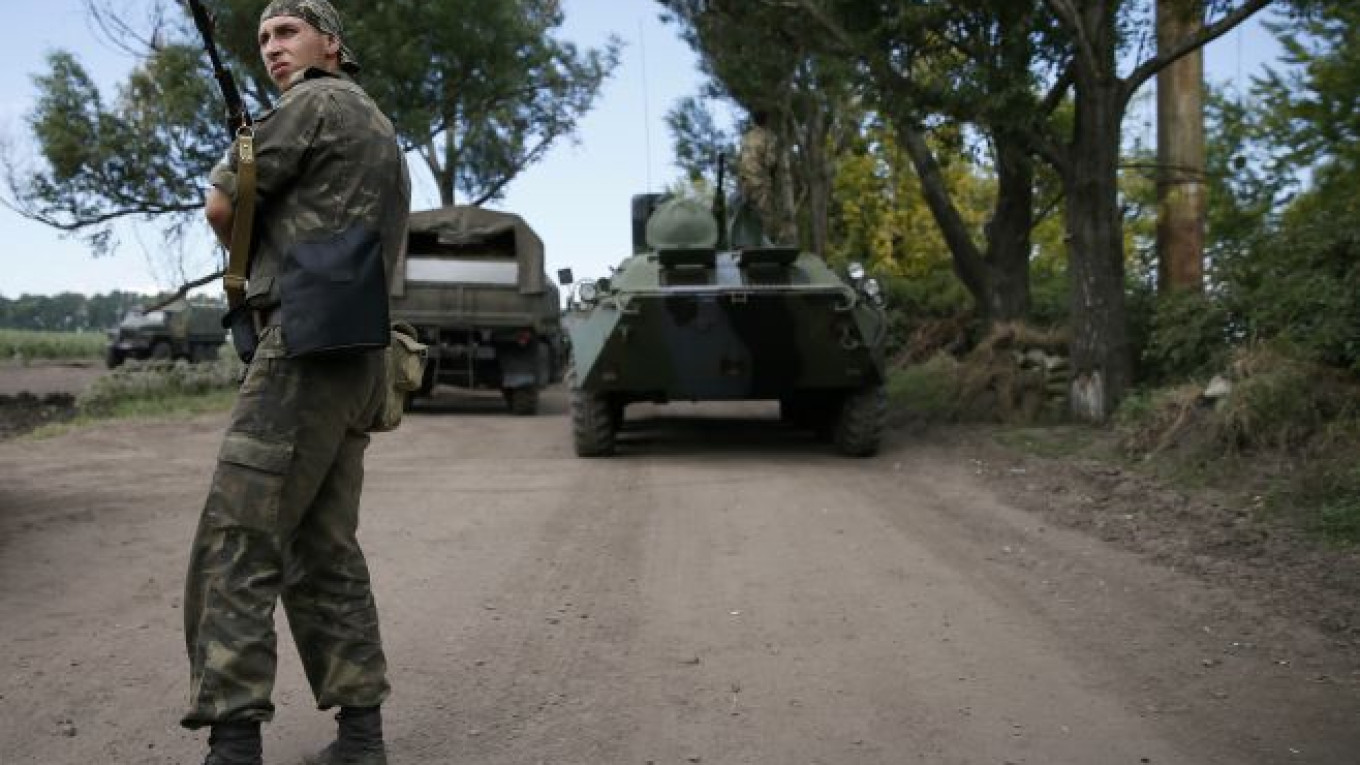Despite winning closer relations with the EU, many Ukrainians are losing faith in the Maidan revolution as war rages in eastern Ukraine. Their future is dependent on the duration and outcome of a civil war, that, no matter its conclusion, has already significantly damaged the country's economy.
Ukraine already had serious economic problems even without having to deal with separatists in its east. This year economic growth in Ukraine is estimated to shrink by more than five percent. The country faces a short-term debt service hurdle of more than $30 billion, which could be met with help from the International Monetary Fund and the EU, but only on the condition of stringent reforms.
While other Eastern European countries have thrived, Ukraine's economy is smaller now than it was when she gained her independence more than twenty years ago. This is primarily due to corruption and energy inefficiency. Unscrupulous and powerful interests siphon off billions in revenue every year and the Ukrainian people suffer the consequences.
Ukraine has made some progress recently by reducing energy subsidies and taming its Central Bank's penchant for currency manipulation. However, patience is running thin, and the new president's honeymoon period will not last long.
Not long ago I spent some time in Kiev and other areas of Ukraine, talking to citizens about their experiences. "We all had such high expectations. Now we now realize, whatever happens, it is going to take a long time to for things to get better for us, even if we partner with the European Union," one young man complained. "People just want jobs. And there are none." The cessation of hostilities is paramount to economic recovery. With the ending of the cease-fire and the active targeting of pro-Russian separatist groups in the East, it seems Poroshenko has decided that the only way to control the situation is to defeat the rebels. This could just be a negotiating tactic; a way to apply pressure for a better settlement with Russia on their many economic differences, most significantly over the price of Russian gas. But in the meantime, the Ukrainian people are suffering both a reduced standard of living and a civil war as well. Nor is the suffering necessarily isolated to eastern Ukraine. Many living in Western Ukraine are from Luhansk or Donetsk and still have family there. "I fear for my parents. They cannot leave" said one acquaintance in Kiev.
Another serious issue for Ukraine is that most of the heavy industry in the country, including the mining, mineral and industrial sectors, is located in the east. The industrial sector in particular is reliant on the Russian military and other heavy industries for business. Without peace in the region, economic stability and growth seem a like a pipe dream.
My last morning in Kiev, I sat at a local cafe and enjoyed coffee with a young Ukrainian girl and her English fiance. "We are here to obtain our fiancee visa," she said. "Are you going to stay in Ukraine?" I asked them. "No," they replied. "We are moving to the U.S. I'm looking forward to North Carolina," she said forcefully.
L. Todd Wood, formerly director, emerging market debt capital markets at Cantor Fitzgerald in New York, is author of "Currency" and other historical fiction novels.A Message from The Moscow Times:
Dear readers,
We are facing unprecedented challenges. Russia's Prosecutor General's Office has designated The Moscow Times as an "undesirable" organization, criminalizing our work and putting our staff at risk of prosecution. This follows our earlier unjust labeling as a "foreign agent."
These actions are direct attempts to silence independent journalism in Russia. The authorities claim our work "discredits the decisions of the Russian leadership." We see things differently: we strive to provide accurate, unbiased reporting on Russia.
We, the journalists of The Moscow Times, refuse to be silenced. But to continue our work, we need your help.
Your support, no matter how small, makes a world of difference. If you can, please support us monthly starting from just $2. It's quick to set up, and every contribution makes a significant impact.
By supporting The Moscow Times, you're defending open, independent journalism in the face of repression. Thank you for standing with us.
Remind me later.


